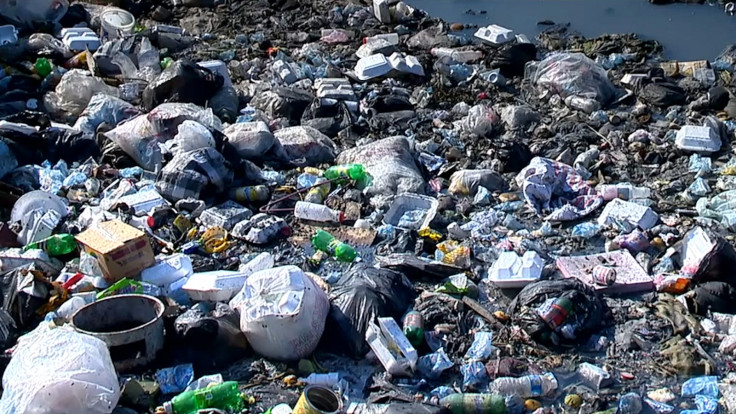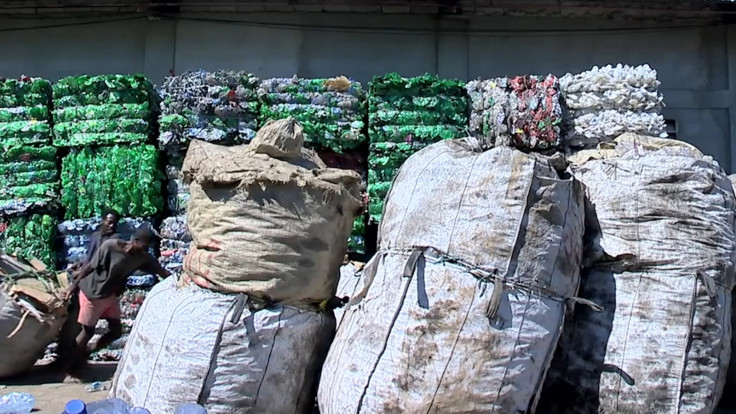This company is using plastic waste to combat poverty
The Plastic Bank is encouraging people to collect plastic waste and exchange it for money or essential items.
Meet the company on a mission to increase the value of plastic and reduce poverty in some of the world's poorest countries.
Started by Canadian entrepreneur David Katz, the Plastic Bank helps poorer communities reduce the amount of plastic pollution in their areas by setting up recycling banks where locals can exchange collected plastic for money. Plastic can also be exchanged for essential items or services such as cooking oil, Wi-Fi, charging a mobile phone or a child's school tuition.
The plastic is recycled into small pellets, which the organisation then sells on to global brands for re-use in their products as "social plastic".
One of the Plastic Bank's largest project is in Haiti, where there are currently 3,500 recyclers and 20 recycling markets. Haiti is one of the world's poorest countries, and also suffers from huge amounts of plastic littering its streets and shorelines. Large amounts of plastic waste ends up in waterways and then travels into the ocean.
Plastic disposal into waterways provides a breeding ground for mosquitoes, which can aid the spread of some tropical diseases and cholera. Clearing plastic from waterways can also help natural basins more effectively handle large storms. This reduction in the risk of flooding is crucial for a country like Haiti, already too familiar with devastating hurricanes.

New technology is at the heart of the Plastic Bank. Blockchain is being used to ensure buyers and sellers have a secure and safe way of transferring funds, and payments and credits are managed through the company's free mobile app.

The social enterprise was recently honoured at COP23 with a UN 'Momentum for Change' Climate Solutions Award for their work in combating both ocean plastic and poverty.
The Plastic Bank has already expanded into the Philippines, and is set to implement their project in Indonesia in 2018.






